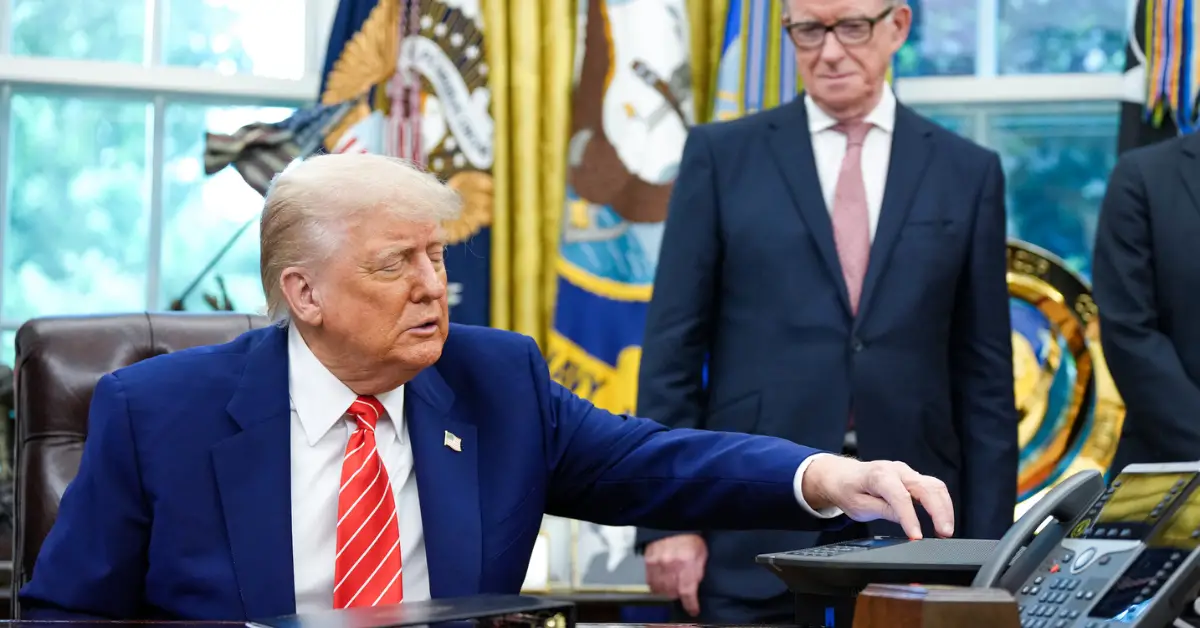Goldman Sachs analysts recently delved into more than 1,000 social media posts by former U.S. President Donald Trump to analyze how he discusses oil. Their research uncovered some fascinating patterns and insights about Trump’s rhetoric, which could have significant implications for energy markets. By sifting through Trump’s extensive online presence, the analysts were able to identify key talking points that reveal his approach to the oil industry and how it might influence future market trends.
The Scope of the Research
Goldman Sachs, a global leader in investment banking and financial services, took the deep dive into Trump’s social media activity as part of an effort to understand how political figures shape public perception about key industries. Trump, known for his frequent and sometimes controversial use of platforms like Twitter, Instagram, and Truth Social, often discusses economic and geopolitical issues, including oil, on these platforms.
The analysts specifically focused on identifying references to oil prices, energy independence, and energy policies. Given Trump’s history of being a vocal critic of OPEC (Organization of the Petroleum Exporting Countries) and his stance on U.S. oil production, the analysts were keen to see how his public statements and social media posts could signal shifts in the energy sector.
Trump’s Focus on Energy Independence
One of the most consistent themes in Trump’s posts was his emphasis on energy independence. Over the years, Trump has repeatedly positioned the U.S. as a leader in global oil production, frequently celebrating his administration’s ability to boost domestic oil output. He has consistently praised the idea of reducing reliance on foreign oil, a topic that resonated strongly with his supporters, particularly during his time in office.
In his posts, Trump has often spoken about how the U.S. could be a net exporter of oil. This narrative fits into his broader “America First” economic agenda, which aimed at strengthening the U.S. economy by focusing on domestic production. For example, Trump has made statements like, “We are going to make America energy independent again. The world is going to depend on us.” This type of language, coupled with his administration’s policies to loosen environmental regulations, created an atmosphere where the U.S. oil industry could thrive, particularly in shale oil production.
The Impact of Trump’s Social Media Strategy
Trump’s social media posts are not only a reflection of his personal opinions but also a form of direct communication with the public. His ability to bypass traditional media channels and reach millions of followers directly has given him a unique platform to influence public opinion.
For example, during periods of high oil prices or geopolitical instability, Trump would often post messages questioning OPEC’s pricing practices, urging the group to lower prices. In some instances, he also directly criticized foreign oil producers, accusing them of manipulating prices in a way that harmed American consumers. His posts sometimes included harsh critiques of Saudi Arabia, a country he has had a complex relationship with, despite being an ally during his presidency.

The frequency of these posts seemed to align with moments when oil prices were volatile or when energy policy was being debated in Congress. Analysts believe that Trump’s rhetoric, often amplified by his followers, has an impact on market sentiment, contributing to short-term fluctuations in oil prices.
Trump’s Criticism of OPEC
One of the major talking points in Trump’s posts was his criticism of OPEC. The Organization of the Petroleum Exporting Countries has long been the subject of scrutiny in U.S. political circles, especially when oil prices are high. Trump’s posts regarding OPEC typically called out the group for what he considered unfair pricing practices. He suggested that OPEC was artificially inflating prices to the detriment of the global economy, especially the U.S.
Trump’s comments were particularly impactful given the global dominance of OPEC in oil production. With countries like Saudi Arabia and Russia being major players in the organization, Trump’s criticism of their pricing policies sometimes sent shockwaves through the energy markets. His blunt posts about OPEC were not just limited to criticism but also included calls for the U.S. to ramp up its production to offset the group’s influence.
The Role of Trump’s Energy Policies
Beyond his social media presence, Trump’s energy policies during his presidency had a direct effect on oil markets. His administration was known for rolling back environmental regulations that limited fossil fuel production, including lifting restrictions on offshore drilling and expanding drilling leases in federal lands. Trump argued that such policies were essential for American energy dominance and economic growth.
The impact of these policy decisions was clear: the U.S. saw a significant increase in domestic oil production during Trump’s presidency, with the country achieving energy independence in many respects for the first time in decades. Social media posts were often a reflection of his administration’s success in these areas, with Trump celebrating milestones and projecting confidence in the future of U.S. energy.
However, the flip side to these policies was the mounting concern about environmental degradation and the long-term sustainability of such practices. Critics of Trump’s approach argued that while the policies may have boosted short-term oil production, they ignored the broader environmental costs and the potential for future climate-related crises. Trump’s posts didn’t always address these concerns, but instead focused on the economic benefits and the strategic advantage of energy independence.
Analyzing the Influence on Market Trends
Goldman Sachs analysts noted that Trump’s social media posts didn’t just serve as an opinion piece—they often set the tone for discussions around oil production, pricing, and regulation. This was particularly evident when there were price swings or when key political developments occurred that impacted the oil industry. For instance, when Trump tweeted about his opposition to OPEC’s pricing practices, there were immediate reactions from traders and investors who considered these remarks when making decisions.
Trump’s impact on oil markets goes beyond just his tenure in office. His public statements continue to shape the conversations surrounding U.S. oil production, OPEC, and the role of energy in global politics. His use of social media as a direct line to his supporters and the public makes it clear that he understands the power of words when it comes to shaping perceptions about oil and energy.
What’s Next for the Oil Industry?
While Trump is no longer in office, his influence on the oil industry remains strong. Analysts will continue to monitor his social media activity for any signs of shifts in his stance on energy issues. It’s also worth noting that Trump’s continued engagement in the political sphere could affect the future of U.S. energy policy, especially as global energy markets continue to evolve.
With the current focus on green energy and climate change, Trump’s views on oil may clash with the growing momentum for renewable energy sources. His unwavering support for the oil industry, paired with his populist rhetoric, ensures that the conversation about energy in the U.S. will remain a complex and contentious issue for years to come.
Conclusion
Goldman Sachs’ analysis of Trump’s social media posts has revealed critical insights into how the former president discusses oil and energy. His focus on energy independence, his criticism of OPEC, and his promotion of pro-fossil fuel policies all contribute to shaping the broader conversation about the future of oil in global markets. Whether or not Trump will continue to have a direct influence on the oil industry remains to be seen, but his social media footprint ensures that his views on energy will continue to resonate with many.
Disclaimer: This article has been meticulously fact-checked by our team to ensure accuracy and uphold transparency. We strive to deliver trustworthy and dependable content to our readers.




